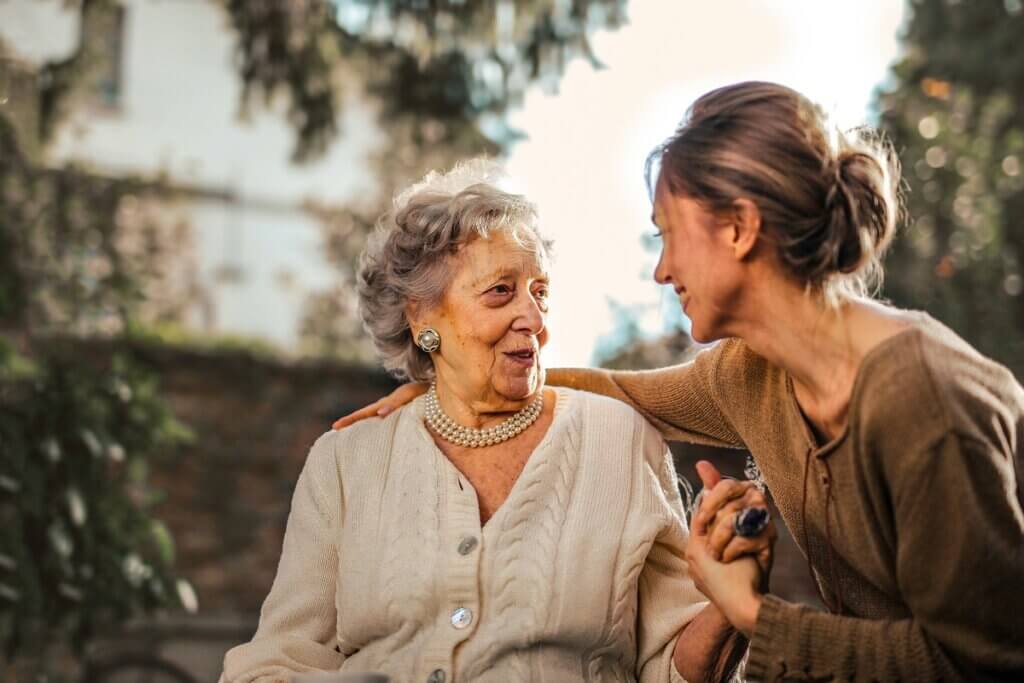Allergies are never any fun for anyone. However, something most of us don’t probably consider is how hard they may be on the elderly. While allergies may not cause bladder incontinence in the elderly, they certainly can cause symptoms to worsen.
The good news is that there are a number of ways you can manage both allergies and bladder incontinence to ensure you or an elderly friend stays comfortable and dry. Let’s talk about it.

What Is Bladder Incontinence and Why Do Allergies Make it Worse?
Bladder incontinence doesn’t have to be just for the elderly. But it is more common within this age group. Bladder incontinence or urinary incontinence is when someone loses control of their bladder and ultimately has urinary leakage. To understand the role allergies play, it’s worth noting there are several types of bladder incontinence.
Types of Bladder Incontinence
- Stress incontinence – This is when urine leaks out due to pressure put on your bladder through actions like sneezing, laughing, coughing, exercising, sudden movements, or lifting something heavy.
- Urge incontinence – Urge incontinence happens when an intense urge to urinate occurs, and then you lose control of your bladder resulting in leakage. It can happen often, including during the night. It also may result from a condition such as an infection or something more serious like a neurological disorder or diabetes.
- Overflow incontinence – This is when there is constant leakage or urine because you can never fully empty your bladder when going to the bathroom.
- Functional incontinence – Functional incontinence is different because the problem doesn’t necessarily have to do with the bladder. Instead, something physical or mental keeps you from making it to the toilet when you need to pee. This is common with someone who has arthritis.
- Mixed incontinence – Mixed is when you are experiencing more than one type of incontinence. This is normally the combination of urge and stress incontinence.
Allergies and Bladder Incontinence
So with everything listed above, where do allergies come in? Most of the time, when we talk about allergies, this plays a role in stress incontinence. This is particularly true for elderly women as their bladder and pelvic floor muscles weaken if they have given birth.
The continuous sneezing and coughing that may be associated with seasonal allergies is one contributing factor. But you may also have pet allergies or even food allergies that make you cough or need to drink more water which leads to other types of incontinence.
Whatever the allergy cause is, managing them is critical for helping manage your incontinence.
How To Help Manage Your Allergies
Getting to know what your allergies are is the most important step. If you deal with seasonal allergies like the rest of us, then there are a number of steps you can take to ease sneezing, coughing, and wheezing.
- Keeping your windows shut if you have seasonal allergies is important. Don’t let it creep into your home where it’s difficult to get it out.
- Continually getting up dust through proper cleaning is a great idea. But be sure to wear a mask and maybe goggles if venturing into particularly dusty areas.
- Keep a nasal spray and any hand medication nearby. If you think your allergies are starting to act up, get ahead of the game by taking your medication. Be sure to check with a doctor before trying out any new medication.
- The best time to head outside for a walk is after a good rain shower when the condition is humid. Avoid dry and windy conditions.
- Avoid activities like gardening, weeding, or mowing the lawn if you have seasonal allergies. If you participate in any of these activities, remove your clothes and wash them when you get inside.
- If you have pets but also have some allergies try to keep them indoor pets. The more they are outside, the more they drag inside with them.
- There are plenty of weather resources to let you know when pollen counts or allergy season days are particularly bad. Check before going outside or when to use your medication.
- An indoor humidifier and a purifier are awesome ways to keep indoor air as clean as possible. This is a great investment if you have the money to do so.
How to Manage Bladder Incontinence
Managing your allergies is not the only thing you can do if you are dealing with incontinence. Plus, it’s not totally possible to stop sneezing or coughing anyways. So by taking it a step further, you can manage your bladder incontinence.
- Strengthening your muscles and, more importantly, your pelvic floor muscles is a proactive way to manage your bladder incontinence. This may seem counterintuitive with stress incontinence, but stress continence likely occurs from weak muscles. Even at an elderly age, exercise and light strength training can make a huge difference.
- A healthy diet also supports managing bladder incontinence. In particular, eliminating caffeine and alcohol are two major factors. These liquids go right through us, so cutting back can make us feel like we don’t have to go to the bathroom as often.
- Wearing bladder leak underwear for when things do happen is the best way to protect yourself from irritations or feeling uncomfortable in public. There are many different styles and briefs from brands like Because Underwear (US based) that specialise in premium quality to help manage your bladder incontinence. In the UK two leading brands are TENA and Modibody.
Keeping Things In Control
A big part of managing your allergies and bladder incontinence is taking note of the small things. With so many variables, it can be difficult for the elderly to keep track of what is negatively affecting their incontinence. By being proactive and taking control of allergies, regardless if they are full-time or seasonal, the chances of accidents go down.
But it’s also important to have the understanding that urinary incontinence still does happen. Having a backup plan to be proactive about the bladder is key. And furthermore, wearing protective underwear for when things go awry can make a major difference.












Leave a Reply